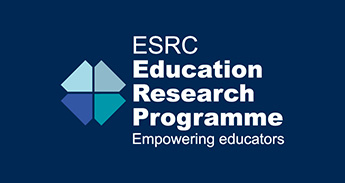Sustainable School Leadership: Comparing Approaches to the Training, Supply and Retention of Senior School Leaders Across the UK
Project duration
Start date: 1 December 2022
End date: 30 November 2025
Funder


Project summary
Senior school leaders play an essential role in shaping educational experiences and outcomes for children, particularly in the most challenging communities.
Even before the Covid-19 pandemic, there were concerns that many existing leaders were leaving the profession early, while potential future leaders were often choosing not to apply for headship, due to the pressures and workloads involved. The pandemic has exacerbated these pressures, raising the risk of a headteacher succession crisis. Furthermore, there are challenges in terms of diversity, with certain groups of leaders facing additional barriers to promotion, while schools in the most challenging contexts often face increased recruitment challenges.
Policy makers across the UK have prioritised actions to enhance the supply, quality and diversity of senior school leaders. These approaches reflect a wider global trend towards defining and promoting a singular interpretation of 'effective' leadership, for example through national headteacher standards and training programmes. But these national frameworks can be problematic, given that individual, school and local needs differ widely.
This study will develop a deeper understanding of approaches to the training, supply and retention of senior school leaders - in particular headteachers - for primary and secondary schools and will offer a vision for where and how these approaches can be enhanced.
Questions
The research questions are:
- How do England Scotland and Northern Ireland recruit, train and retain school leaders?
- How well do these approaches take account of individual, local and systemic needs, in particular in relation to the sustainability of leadership supply, its diversity, equity, quality and fitness for the future?
Methods
The mixed methods comparative study will include:
- a review of international literature and practice on senior school leadership development
- interviews with policy makers and leadership development experts from education and wider sectors
- development of an original theoretical frame which draws together work on individual biography, school and wider policy contexts, with understandings of how these are shaped across diverse place-based contexts
- research into existing approaches to leadership development in each nation, including through: documentary analysis to assess current policy and practice; secondary analysis of existing datasets to examine the composition of the leadership workforce, how participation in national training programmes is associated with outcomes of interest, and patterns of recruitment and retention for headteachers; place-based case studies, involving interviews with leadership development providers and employers, interviews and focus groups with aspiring and serving headteachers, and observations of leadership development events; and national surveys of school leaders, with responses linked to secondary datasets where possible.
- comparative analysis which allows us to refine our theoretical framework and address the research questions.
In Wales we will undertake interviews, a national survey and hold a policy seminar, building on an ongoing national review.
We will work with key stakeholders throughout the study, including through three national expert advisory groups, to inform the research and to identify implications and practical recommendations for future development. Building on these relationships we will publish and disseminate the findings and recommendations to research, policy and practice audiences.
Previous research
Work from a previous project led by Professor Greany and Thomson also feed into the project. School Leaders' Work and Well Being was a multi-phased project. Phase one focussed on leading in lockdown with stage two focussing on leading after lockdown. Further funding in 2022 led to a series of round tables around the country, looking at possible interventions to address the recruitment and retention crises. You can view all reports from each phases on 'the research' webpage.